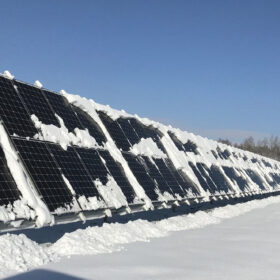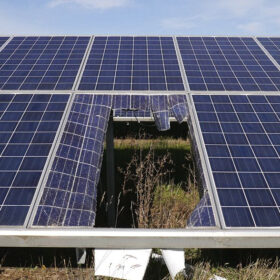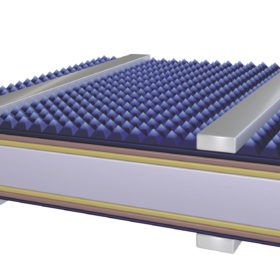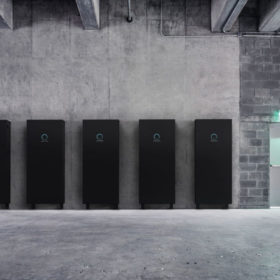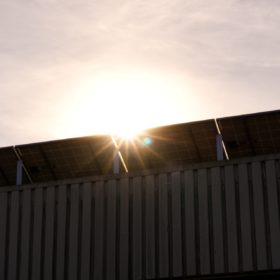Weekend Read: Data harvesting
Mounting system manufacturers back their technology but farmers still have questions about the realities of solar on agricultural land. Ramping up research on how agrivoltaics affect farming yields could provide vital answers.
Weekend Read: A 10 GW time bomb
It is estimated that 10 GW of solar modules in Germany suffer from prematurely aging backsheets, with sites of all sizes affected. pv magazine Germany’s Cornelia Lichner looks at how to detect and repair such defects.
New optimizations for a 24.5% efficient heterojunction solar cell
Scientists in Germany analyzed the main sources of performance loss in a silicon heterojunction cell, and developed several optimization strategies to improve overall performance. By adding a second layer of amorphous silicon at the rear of the device, and a magnesium fluoride anti-reflective layer, they were able to boost cell efficiency by around 1% to reach 24.51%.
Growing German storage market buoyed by falling prices
RWTH Aachen University and Forschungszentrum Jülich evaluated the data. It shows a growing demand for photovoltaic storage systems in 2019 and continued positive market sentiment lasting well into 2020.
European consortium bid to bring 25.4%-efficient heterojunction-IBC solar cell into mass production
The EU-funded Nextbase project aims to manufacture heterojunction, interdigitated back-contact solar modules for less than €0.275/W. Solar panels featuring the Nextbase cell tech are expected to have a conversion efficiency of 23.2%, according to the European Commission.
